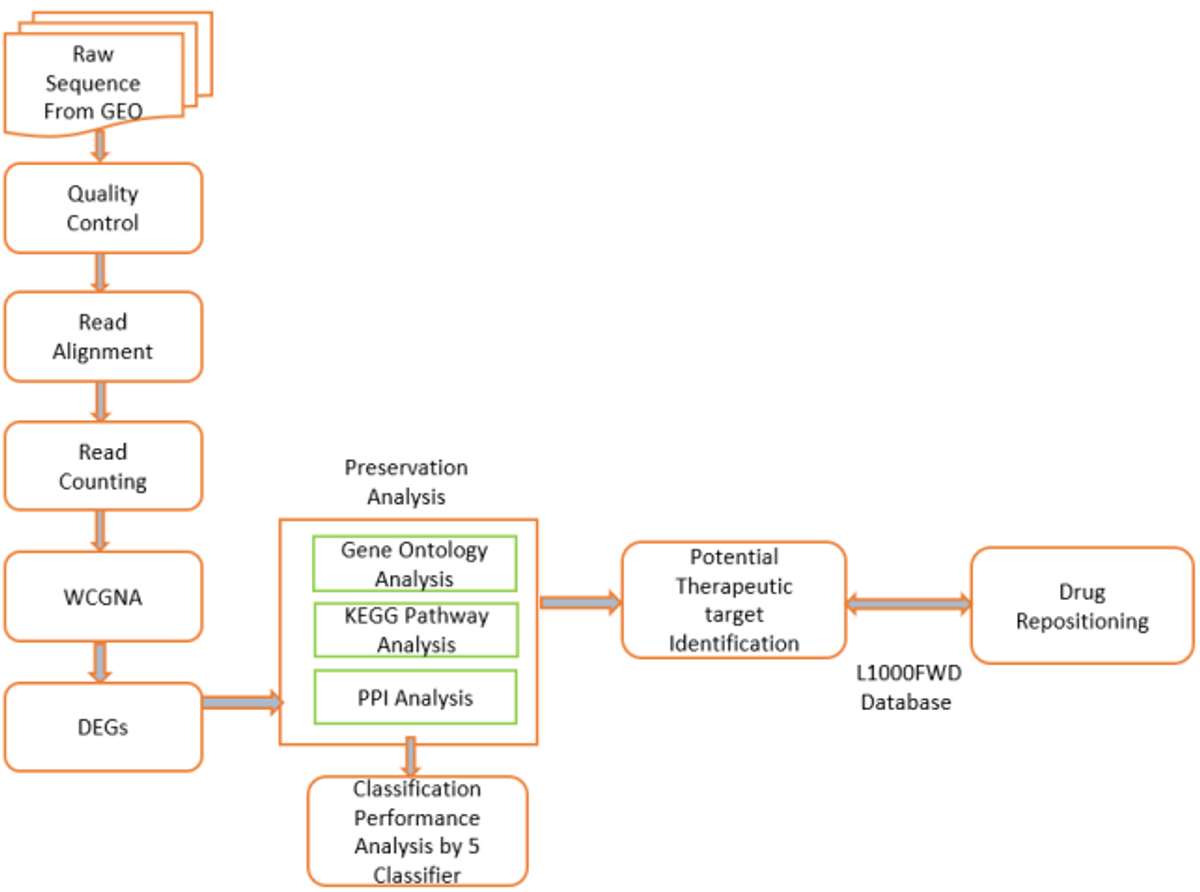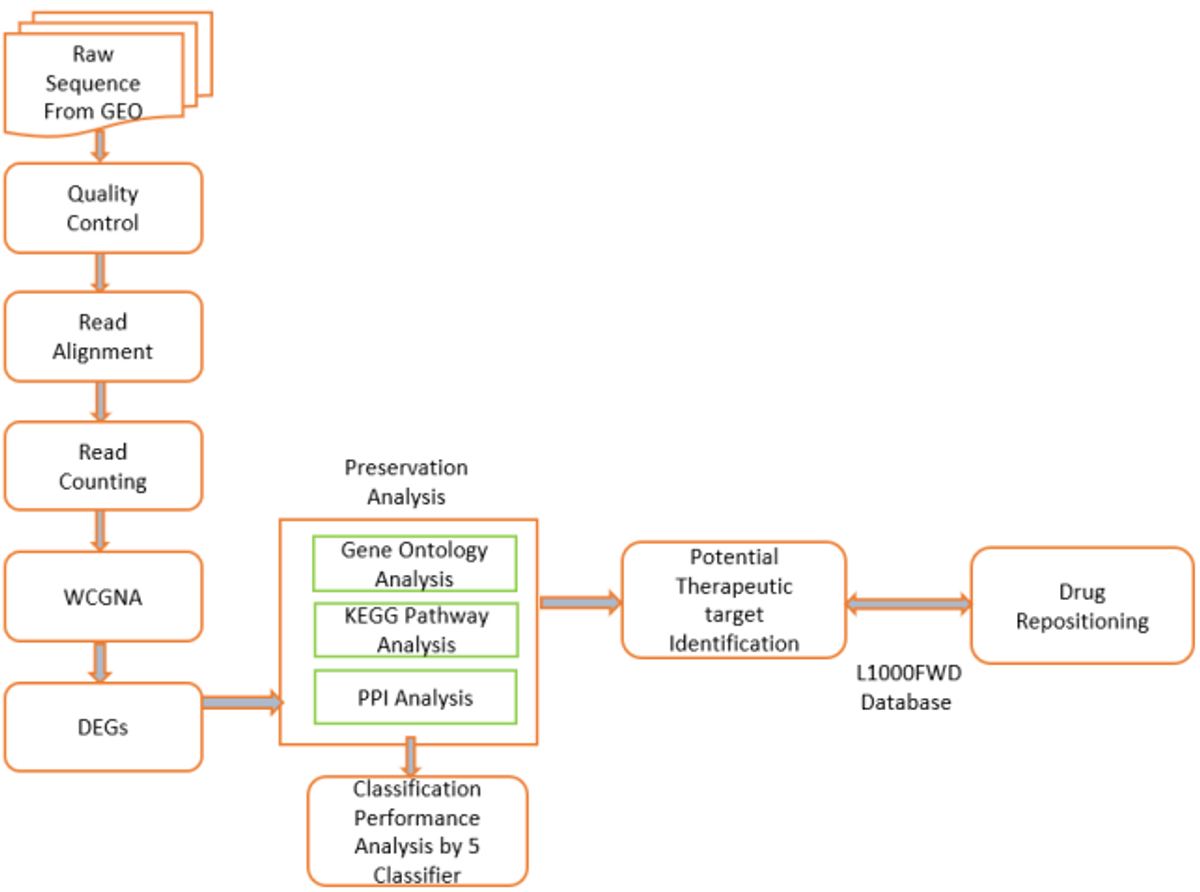
A Pipe-line of RNA-Seq Analysis: Indentifying Potential Biomarkers, Pathways and Candidate Drugs for Prostrate Cancer using Machine Learning and Bioinformatics Methods
Prostate Cancer (PCa) is one of the most lethal urologic cancers affecting men worldwide. It is crucial to look into potential biomarkers in order to facilitate the early diagnosis and individualized treatment of PCa. Inside this study, we used microarrays from the Gene Expression Omnibus (GEO) dataset to conduct an analysis and discovered genes with variable expression. we examined tumor tissue samples from 36 individuals with prostate cancer and 14 individuals with benign samples. To undertake expression of genes profiling, obtain the transcripts that distinguish between invasive and benign cancer. Based on the results of the weighted correlation network analysis (WGCNA), the prognostic profile is the factor that is most significant to differentially expressed genes (DEGs). These results suggest KRT5, KRT14, KRT17 and DST as potential biomarkers in the diagnosis and follow-up of PCa. Additionally, 10 small-molecule drugs with the capability of treating PCa were explored. As a result, drug-gene interactions study indicates that Cytarabine, BRD-K65242613, Etoposide, BRD-K49010888 and MST-312 are the top-scoring adapted drugs. The findings support clinical heterogeneity and can be used to target diagnostic and treatment approaches
Research Images


